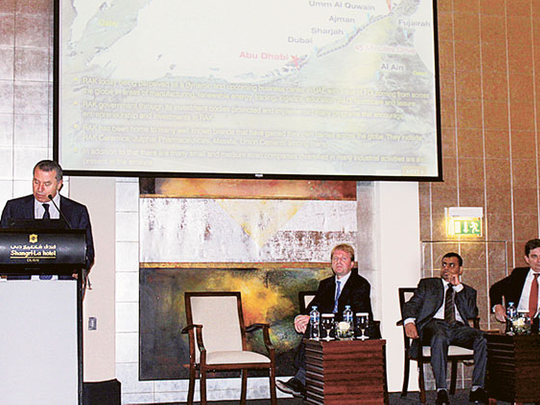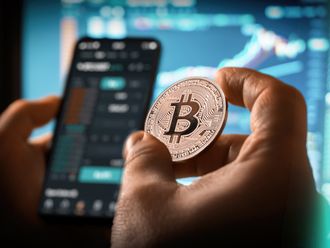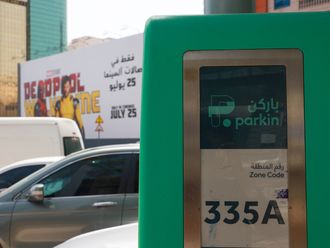
Dubai: Ras Al Khaimah Investment Authority (Rakia), the government's investment arm, is planning to either reduce or exit from its international projects to be able to focus on domestic ventures, a top official said.
"His Highness Shaikh Saud Bin Saqr Al Qasimi, Supreme Council Member and Ruler of Ras Al Khaimah, has instructed us to focus on Ras Al Khaimah and reduce our investment outside," Dr Khater Masaad, Chief Executive Officer, told Gulf News on Tuesday evening on the sidelines of a briefing organised by the CEO Club — a network of 11,000 members worldwide — in Dubai.
Rakia has investment projects in Georgia where it runs the Black Sea port of Poti. Rakia had a plan to develop a free zone, and it also has been given land to develop properties near the capital Tiblisi.
Asked if his organisation would sell those to refocus on the domestic market, he said: "Yes, we are looking into that. Sale of the assets is an option we might consider."
He said Rakia had attracted more than Dh11 billion in investment since its inception in late 2004.
"Despite the current economic slowdown worldwide, we are expecting 20 per cent growth in investment in Ras Al Khaimah," he said.
Two of the emirate's free zones are offering business licences and work desks for a year for as low as Dh10,000, with an option to open windows in European cities. Rakia issued 1,002 licences from January to November this year, a record.
Rohit Maindwal, CEO of JBF RAK LLC, said his company has invested $220 million in a major packaging industry in Ras Al Khaimah Industrial Zone, which is generating $650 million in annual turnover.
"We had a vision to enter the Middle East market. It took us 48 hours to process the business licence after our final discussions with Dr Khater Masaad's team and another 14 months to construct the project and start commercial operations," he said.
The industry currently produces 400,000 tonnes of polyester resins a year, which are used by companies such as PepsiCo and Nestle.
Dr Masaad said that since the launch of a free zone and industrial zone in Ras Al Khaima's Al Ghayl area, 40 per cent of the land had been booked.
India's Ashoke Leyland has invested $50 million in a bus assembly line to be inaugurated by Shaikh Saud yesterday. Al Ghayl Industrial Park offers a 3.7 million square metre free zone and a 17.3 million square metre industrial zone, served by a power plant with 85 MW output and 65 MW surplus capacity.
"We offer one of the best and most cost effective investment environments in the region. That's why a lot of large industries and SMEs are moving towards the emirate," he said.
France's ARC, which owns Luminarc glassware, invested $175 million in 2004 by acquiring a stake in RAK Glass which now feeds the region's 300 million customers. "The move from France to Ras Al Al Khaimah, has been a strategic one for us. We wanted to be closer to our customers in the region," said Francois Bonneville, CEO of Arc International.
Economy: On growth track
The RAK economy recorded a 14 per cent year-on-year growth from 2005-2008. Last year its gross domestic product grew by nine per cent to $4.3 billion.
The emirate's economy experienced solid growth since June 2003 when Shaikh Saud was named Crown Prince of Ras Al Khaimah. He began a number of programmes and projects that have transformed the sleepy town into a vibrant economy.
The emirate, which has a coastline of 65 kilometres, traces its history back 6,000 years. Its flat desert landscape is also complemented by mountains that offer limestone and other natural resources that Shaikh Saud has successfully utlised to develop industries that are generating wealth for the emirate.
It hosts the UAE's biggest cement factories, and has been the biggest source of the rocks that form the base of artificial islands such as the Palm Islands, the World Islands in Dubai, Al Murjan Island in Ras Al Khaimah and several other land reclamation projects across the UAE.
RAK Ceramics remains the emirate's biggest cash cow and fetches hefty revenues for the emirate. The government has also revamped its port, airport and launched an airline to boost its economy.
However, its most successful venture remains the free zones that are attracting a large number of small and medium investors as well as big industries.












